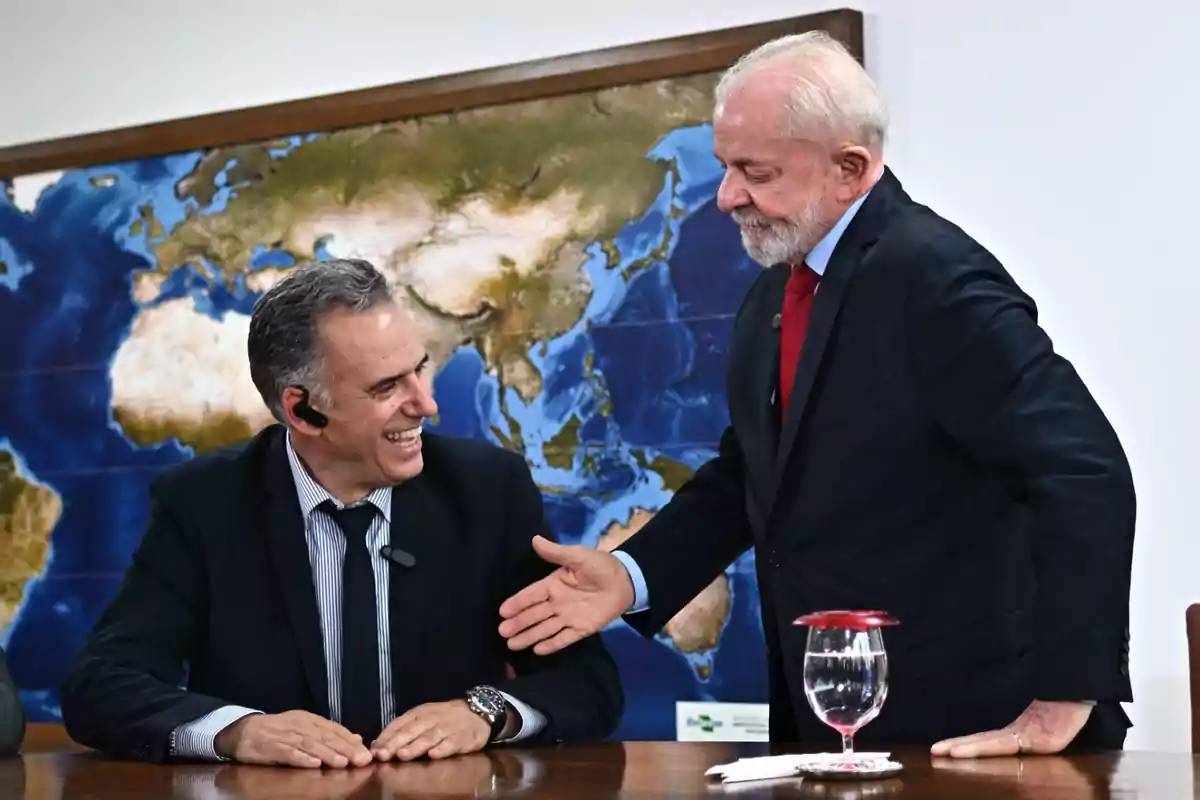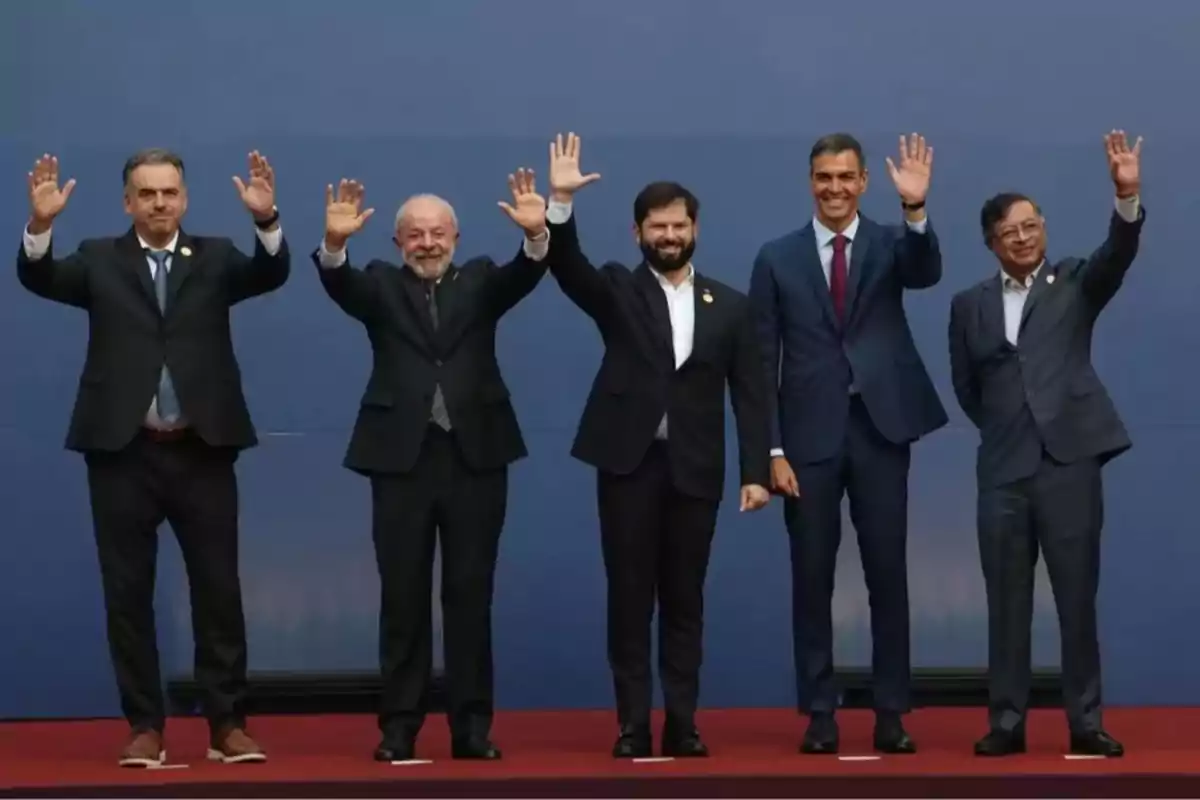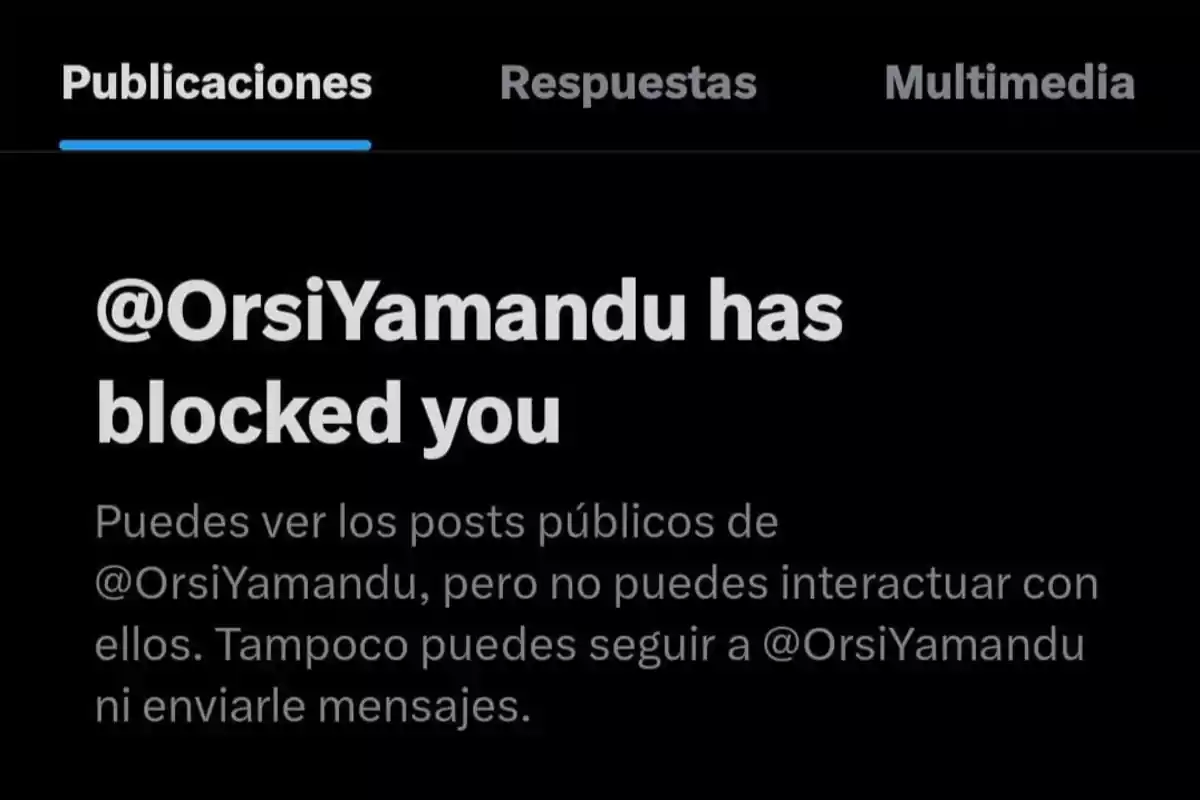
The Totalitarian Side of Yamandú Orsi
Censorship on social media
It would seem that Orsi doesn't want to accept or hear criticism of his administration. Various testimonies state that, after a request or complaint was made on the social network X to President Orsi's official account, they were blocked.
One of these is my case: I can't follow or make any kind of comment on his official account, a matter that personally doesn't disturb me, but eventually does affect many citizens who genuinely want to interact or make requests on social networks, as well as express their discontent with the current situation of the country.
Apparently, there is an effort to protect Orsi's image on social networks by cutting off citizens' free expressions. As of today, the number of accounts of people who have been blocked by the president of Uruguay is unknown, but the pattern is usually the same: after criticism or complaints regarding his administration, both as mayor at the time and as the current president of all Uruguayans, the blocking proceeded.
You may also be interested in...
Orsi tries to project an image of dialogue necessary due to his internal political context, as well as an image of democratic consensus, where citizens are heard in "social dialogues" outside parliament, which are nothing more than staged performances without representation. The reality is that he turns his back on the people and doesn't tolerate any criticism, especially if it goes against the narratives he wants to instill in the population.
Does Orsi intend to block freedom of expression?
The first president of Uruguay to block people on social networks goes further and also raises the issue of censorship at the international level, something that seems to originate in Brazil with Lula, as leader of the São Paulo Forum or the current Puebla Group.

President Orsi at the "Democracy Always" summit, held in Santiago de Chile in July, met with left-wing leaders and proposed creating public agencies to combat "disinformation" on social networks, warning about the advance of political extremism in the region.
According to him: "There must be some kind of regulation of fake news, where there is a space for verification. Lying is not good." The problem arises when governments establish control over the truth, something typical of authoritarian regimes, and it becomes an instrument of censorship.
You may also be interested in...
In my opinion, the aim is to create "ministries of truth" to control freedom of expression, something very dangerous for democracy and for the image of a president who presents himself as democratic and open to dialogue, but with a totalitarian idea that brings him closer to his dictatorial ideological peers in Venezuela and Cuba.
If this is Yamandú Orsi's behavior as president—blocking and censoring criticism—, how will the implementation of these truth control agencies he presents alongside left-wing leaders like Lula be?
Social networks have become the last barrier of dissent without absolute government control; people can express their ideas directly, whether or not it pleases those in power.
The influence of Brazil
It seems that left-wing leaders also have a common goal of undermining freedom of expression by controlling social networks and news. In addition, Yamandú Orsi is doing Lula a favor, establishing Uruguay as a "puppet state" in the international sphere, to fulfill the agenda of the Latin American left.

This agenda is advancing in Brazil from within, with statements such as that of the president of the Federal Senate, Rodrigo Pacheco, an ally of Lula, who stated that "regulation of social networks in Brazil is inevitable."
However, after the blocking of the fake news bill in Congress, the government is preparing new regulations that would allow platforms to be blocked without a court order. The president of Brazil confirmed that he asked the dictator of China Xi Jinping for advice and that a Chinese expert would visit Brazil, confirming the strategy of totalitarian control of social networks.
You may also be interested in...
Ultimately, a danger for Uruguay, our freedom of expression, and our democracy. It is not a good thing to take as an example countries that curtail freedoms, imprison and convict journalists, seek advice for control from dictatorships, as well as protect and endorse the region's dictators.
More posts: